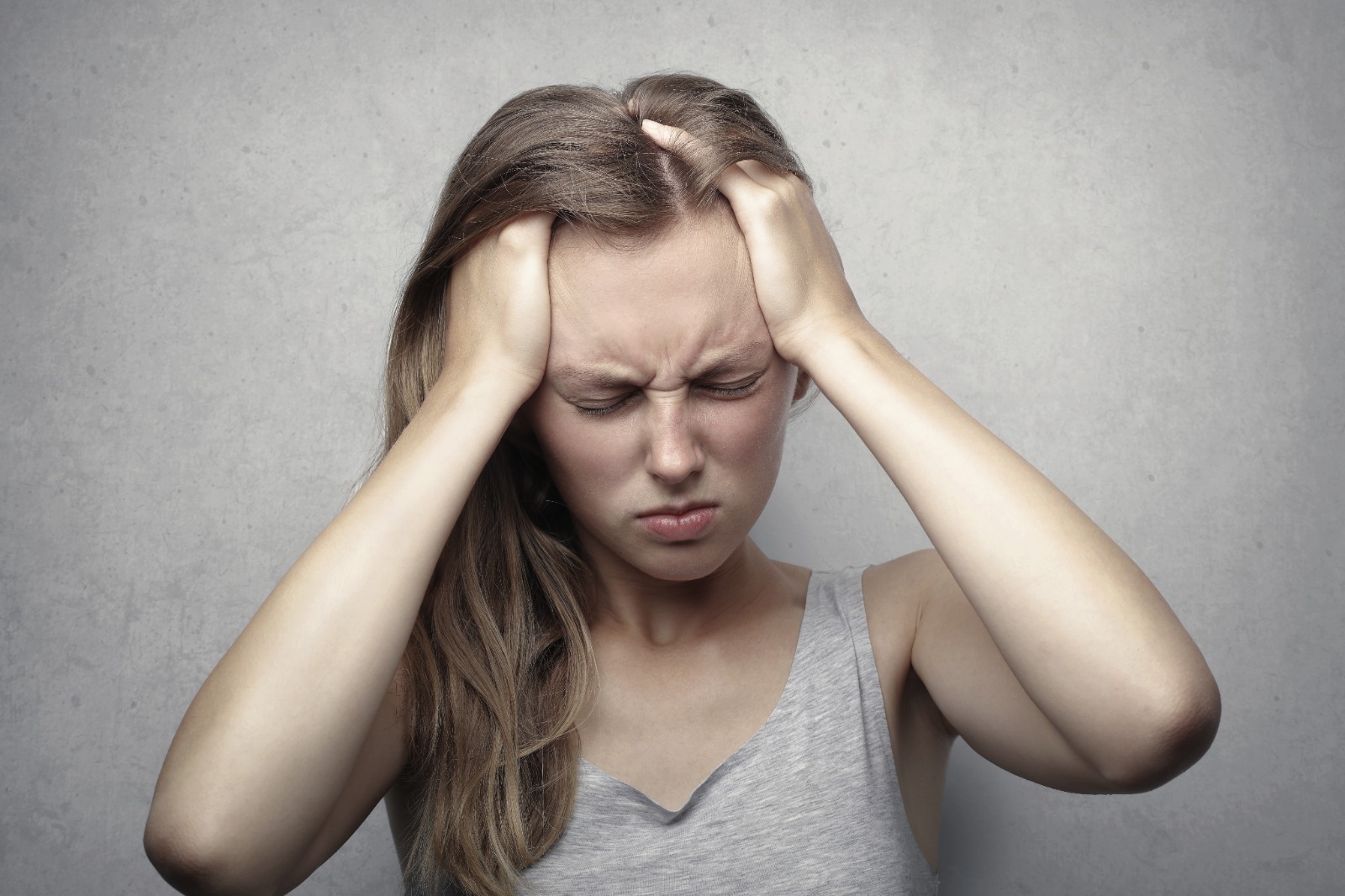Pain Management
Tension Headache: What are its symptoms, causes, and treatment?
By S.I. (staff writer) , published on August 11, 2023

Medicine Telehealth Health headache painkilllers stress
What is a Tension Headache?
Tension headaches are one of the most common types of headaches, characterized by a dull, aching pain and a feeling of pressure or tightness around the head. They can cause discomfort and impact daily activities.
What are the Symptoms of Tension Headaches?
The symptoms of tension headaches can vary from person to person, but the most common signs include:
- Headache: Tension headaches typically cause a steady, mild to moderate pain that may feel like a tight band around the head. The pain is often described as a dull ache.
- Pressure or Tension: Many individuals with tension headaches experience a sensation of pressure or tightness in the forehead, temples, or back of the head.
- Bilateral Pain: Tension headaches often affect both sides of the head, although the pain may be more prominent in one area. [1]
- Neck and Shoulder Tension: Some people with tension headaches may also experience muscle stiffness or tightness in the neck and shoulder area.
- Sensitivity to Light and Noise: Sensitivity to light (photophobia) and noise (phonophobia) is common during tension headaches. Bright lights or loud sounds can exacerbate the discomfort.
What are the Causes of Tension Headaches?
The exact causes of tension headaches are not fully understood, but several factors may contribute to their development, including:
- Muscle Tension: Tension headaches are often associated with muscle tension and tightness in the head, neck, and shoulder muscles. This muscle tension can result from stress, poor posture, or prolonged periods of sitting or working in one position. [2]
- Emotional Factors: Emotional stress, anxiety, and depression are known to increase the risk of tension headaches. Psychological factors can trigger or worsen headache symptoms. [3]
- Environmental Factors: Certain environmental factors, such as loud noises, bright lights, strong smells, or weather changes, can act as triggers for tension headaches in susceptible individuals.
Management Strategies for Tension Headaches:
While tension headaches can be challenging to completely prevent, several strategies can help manage the symptoms and reduce the frequency and severity of episodes. These include:
- Over-the-Counter Pain Relief: Non-prescription pain relievers, such as acetaminophen, ibuprofen, or aspirin, can help alleviate the pain associated with tension headaches. It is important to follow the recommended dosage and consult a healthcare professional if symptoms persist or worsen.
- Stress Management Techniques: Practicing stress management techniques, such as relaxation exercises, deep breathing, yoga, or meditation, can help reduce muscle tension and alleviate headache symptoms. [4]
- Physical Therapy: Physical therapy or exercises that focus on stretching and strengthening the neck and shoulder muscles may be beneficial for individuals with frequent tension headaches. [5]
- Heat or Cold Therapy: Applying a warm compress or taking a warm shower can help relax tense muscles and provide temporary relief. Some individuals find cold therapy, such as using an ice pack, beneficial for numbing the pain.
- Lifestyle Modifications: Adopting a healthy lifestyle that includes regular exercise, adequate sleep, and a balanced diet can contribute to overall well-being and help manage tension headaches.
References:
- https://journals.lww.com/pain/Abstract/1981/04000/The_experience_of_headache___An_assessment_of_the.8.aspx
- https://headachejournal.onlinelibrary.wiley.com/doi/10.1111/j.1526-4610.1985.hed2501023.x
- https://headachejournal.onlinelibrary.wiley.com/doi/10.1111/j.1526-4610.1986.hed2604160.x
- https://psycnet.apa.org/doiLanding?doi=10.1037%2F0882-7974.3.1.96
- https://www.jstage.jst.go.jp/article/jjpta/17/1/17_Vol17_005/_article/-char/ja/
Find articles related to: Medicine Telehealth Health headache painkilllers stress
More articles about Pain Management
Back to the Health Tips Index




